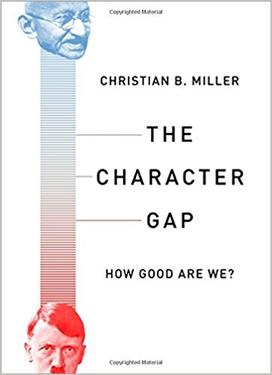Christian Miller ’99 on the Gap Between Who We Are and Who We Think We Are

The author: Christian B. Miller ’99 is a philosophy professor at Wake Forest University and is the author of Moral Character: An Empirical Theory and Character and Moral Psychology.

But Vance had struggled with heart problems for many years, and suddenly he collapsed to the floor.
Imagine you are shopping at Target and happened to turn down a crowded aisle where you encounter a man in distress. What would you do? Help him in some way, of course. Wouldn’t everyone?
Well, it turns out that many of the shoppers did nothing at all. They walked around his body. Some even stepped over his body! It was only later that several nurses administered CPR. But it was too late. Walter Vance died that night in the hospital.
We might immediately think — surely those were awful, cruel, and heartless people, the dregs of society, the worst of the worst. Unlike ourselves and the people we know, the shoppers were the exceptions, the “bad people.”
However, we need to be cautious. For as we will see in this book, there is a good reason to think that many of us would have done the same thing if we had been in a similar situation. We have characters that can lead us to neglect a person’s obvious and immediate needs.
“Where is the good Samaritan side of people?” said Vance’s coworker. “How could you not notice someone was in trouble?”
These are important questions. This book will begin to answer them.
Reviews: “This is a very valuable book at a moment when our society could use a dose of openness and a sense of forgiveness.” — E.J. Donne Jr., Georgetown University











1 Response
Norman Ravitch *62
8 Years AgoThis all can be explained by...
This all can be explained by the location, a Target store. Target is for people who think they are too sophisticated to shop at Walmart where the rednecks shop; they think Target has class and even give the name a Gallic pronunciation, Targeay! Self absorption thus prevents Samaritan behavior I think.